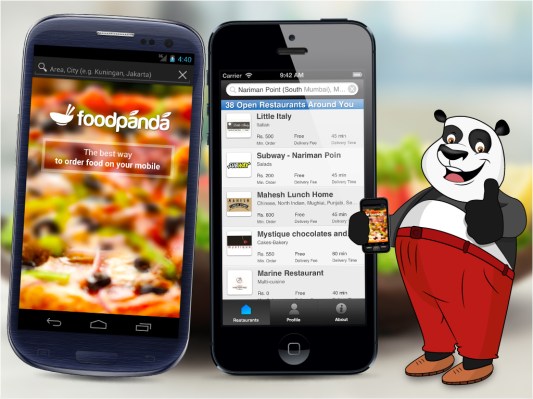On the heels of Amazon becoming the latest e-commerce company to move into the takeaway and restaurant delivery business, some more consolidation for one of the bigger competitors out of Europe. Foodpanda, the delivery startup from the Samwer brothers’ Rocket Internet incubator, is announcing the acquisition of three national operations across Central Europe: Donesi.com in Serbia, Montenegro, and Bosnia & Herzegovina; Pauza.hr in Croatia and NetPincer in Hungary.
The significance of the acquisitions is two-fold: first for how it underscores the rapid acquisition march of takeout delivery companies as they aim for better economies of scale; and the second is the emphasis on emerging markets as a growth engine.
“Foodpanda has always been focusing on Central Eastern Europe as one of the most important food delivery markets,” said Ralf Wenzel, cofounder and MD of Foodpanda, in a statement. “The recent acquisitions strengthen our leading position and will allow for an even better and more comprehensive offering to our customers.”
Foodpanda tells me that it is not disclosing the financial terms of the deals, nor how many customers they will add to Foodpanda’s platform. All together, the Foodpanda group — which includes other brands like Hellofood — covers over 40 countries globally.
The companies that were announced today were primarily owned by their founders — meaning little in the way of VCs to drive up valuations or hard bargains. Together the deals cover delivery services for well over 1,000 restaurants, to add to existing Foodpanda operations in these markets (550+ for NetPincer, 550+ for Donesi.com and “hundreds” for Pauza.hr).
The acquisitions come at a time of heated race among the bigger players in the food delivery market for more customers and market share.
As with other e-commerce plays, food delivery operates on economies of scale. Small commissions taken on each delivery and using a large fleet of drivers working across as many restaurants as possible means that the more transactions a delivery business does, the better its returns will be.
Foodpanda — which most recently reported a fundraise of $60 million — has been using some of its war chest to buy up more marketshare in countries where it is already active, and also to move into new territories.
Before today’s announcements, one of its more recent deals involved an asset swap with its competitor Delivery Hero to respectively improve their positions across India, Mexico and Latin America.
Delivery Hero, meanwhile, which has raised hundreds of millions of dollars this year and is valued at over $1 billion, has also been buying up stakes in more mature markets like Korea and Germany, too.
